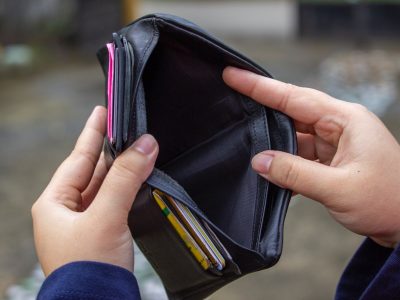This week, nurse practitioner Jami L. Mayhew of Glen Carbon, Illinois pleaded guilty to healthcare fraud after submitting false claims to Medicaid. Documents filed in court show that from May 30 to June 26, 2017, Mayhew knowingly participated in a scheme to defraud the government program of tens of thousands of dollars by performing medically unnecessary wellness visits across the area.
Mayhew will be sentenced later this year following her involvement in one of the state’s biggest cases of nursing home fraud in recent history.
Questionable Home Visits
According to prosecutors, the 41-year-old nurse practitioner was working for a company called General Medicine, P.C. at the time of the alleged crime. For the scheme to work, she would visit nursing home residents multiple times, even if these sessions were medically unnecessary. She would only examine them for a few minutes at a time, writing up bogus notes on the progress of the patient.
The court argues that Mayhew knew she was submitting false information to Medicaid. She also misrepresented the nature of these visits, falsely reporting that her sessions met the government’s billing requirements for complex subsequent nursing home encounters, even though they did not.
Over the course of a month, she had submitted 251 false claims to Medicaid. Records show that the government paid her employer $23,000 for these visits during the established timeframe. Mayhew herself made $27 for each completed visit. She ended up making a total of $6,777.
Now, Mayhew is being charged with a felony. If prosecuted, she could face up to ten years in prison and a fine of $250,000. Her hearing is set for December 10th.
The Reality of Healthcare Fraud
Unfortunately, this is not a new phenomenon. The National Healthcare Anti-Fraud Association estimates conservatively that health care fraud costs the nation about $68 billion annually, which accounts for around 3% of the nation’s $2.26 trillion in health care spending.
Administrators and federal regulators are urging the public to be on the lookout for suspicious behavior as it relates to healthcare fraud. Scammers are using a variety of tactics to trick consumers and providers into handing over their personal information, including emails, social media posts, text messages, and phone calls. Others are even going door-to-door, soliciting unwanted services, and promoting false information.
According to the Office of the Inspector General at the U.S. Department of Health and Human Services, use these tips to protect yourself and your patients from fraud:
- Beneficiaries should avoid unsolicited requests for their insurance information. Medicaid/Medicare will not call you to sell special programs or benefits.
- Be wary of those selling COVID-19 testing supplies, treatments, and vaccines.
- Don’t respond to suspicious links or messages related to COVID-19 from unknown parties.
- Do not give your personal or financial information to anyone claiming to offer HHS grants related to COVID-19.
- Do not pay for coronavirus testing online. When making an appointment at a clinic, research the facility to make sure it is an actual testing site.
- Do not respond to contact tracers asking for insurance or financial information.
It’s also important to remember that the situation is changing rapidly. New scams and scandals are popping up every day. Visit the HHS website often to keep up with the latest news in healthcare fraud.
Anyone who believes they may have information related to this or any similar schemes involving healthcare fraud are encouraged to contact law enforcement by calling the HHS fraud hotline at 1-800-HHS-TIPS (1- 800-447-8477) or by going online at https://oig.hhs.gov/fraud/report-fraud/.

















